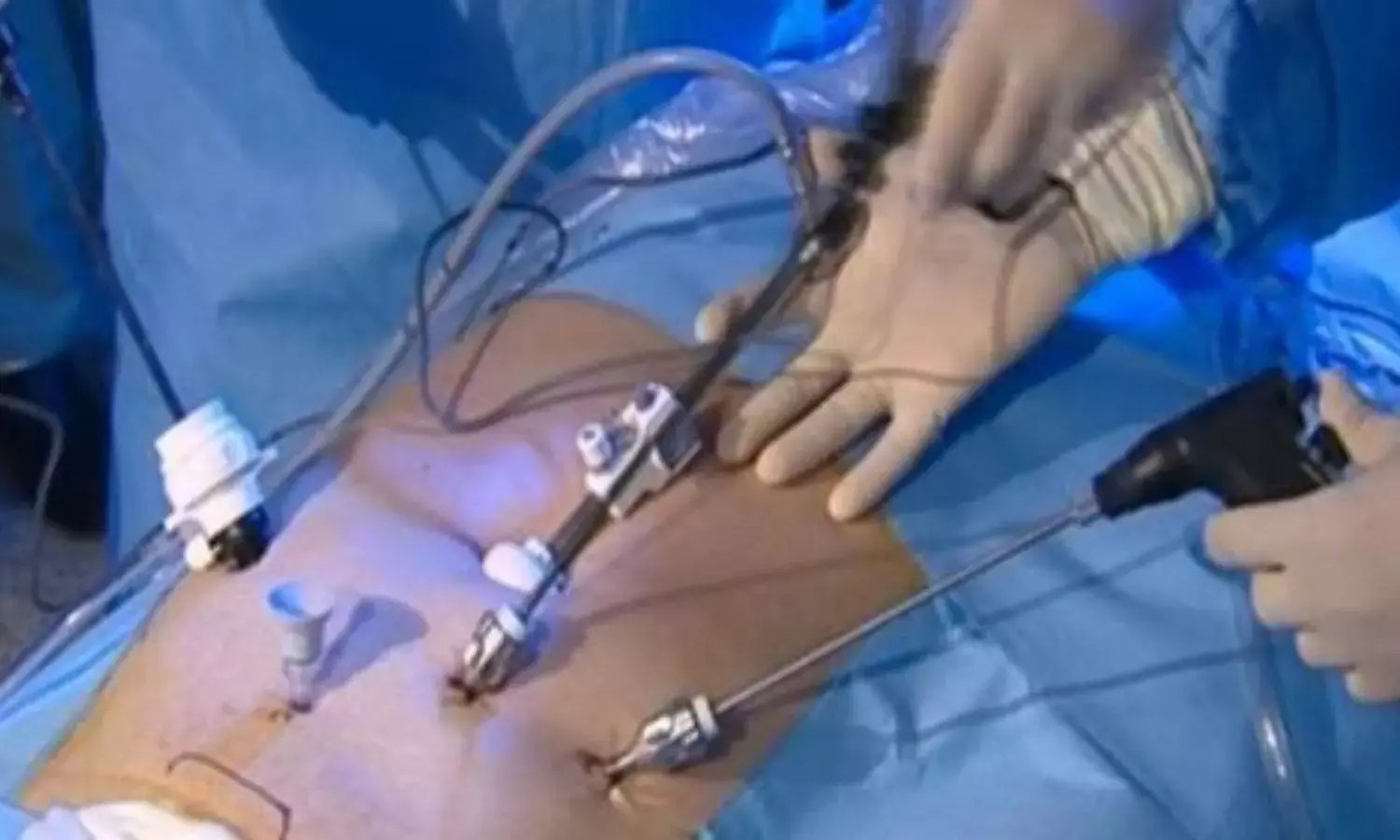- Home
- Medical news & Guidelines
- Anesthesiology
- Cardiology and CTVS
- Critical Care
- Dentistry
- Dermatology
- Diabetes and Endocrinology
- ENT
- Gastroenterology
- Medicine
- Nephrology
- Neurology
- Obstretics-Gynaecology
- Oncology
- Ophthalmology
- Orthopaedics
- Pediatrics-Neonatology
- Psychiatry
- Pulmonology
- Radiology
- Surgery
- Urology
- Laboratory Medicine
- Diet
- Nursing
- Paramedical
- Physiotherapy
- Health news
- Fact Check
- Bone Health Fact Check
- Brain Health Fact Check
- Cancer Related Fact Check
- Child Care Fact Check
- Dental and oral health fact check
- Diabetes and metabolic health fact check
- Diet and Nutrition Fact Check
- Eye and ENT Care Fact Check
- Fitness fact check
- Gut health fact check
- Heart health fact check
- Kidney health fact check
- Medical education fact check
- Men's health fact check
- Respiratory fact check
- Skin and hair care fact check
- Vaccine and Immunization fact check
- Women's health fact check
- AYUSH
- State News
- Andaman and Nicobar Islands
- Andhra Pradesh
- Arunachal Pradesh
- Assam
- Bihar
- Chandigarh
- Chattisgarh
- Dadra and Nagar Haveli
- Daman and Diu
- Delhi
- Goa
- Gujarat
- Haryana
- Himachal Pradesh
- Jammu & Kashmir
- Jharkhand
- Karnataka
- Kerala
- Ladakh
- Lakshadweep
- Madhya Pradesh
- Maharashtra
- Manipur
- Meghalaya
- Mizoram
- Nagaland
- Odisha
- Puducherry
- Punjab
- Rajasthan
- Sikkim
- Tamil Nadu
- Telangana
- Tripura
- Uttar Pradesh
- Uttrakhand
- West Bengal
- Medical Education
- Industry
Minimally invasive Radical prostatectomy tied to De Novo storage symptoms

A new study shows that de novo storage symptoms occur in a significant number of Radical Prostatectomy (RP) patients. Patients who have had minimally invasive surgery (MIS) are more vulnerable. Clinical complaints of new onset storage symptoms after RP may be due to anastomotic strictures or as an accommodation for stress urinary incontinence; however, a subset of men will experience de novo storage symptoms in the absence of stricture or stress urinary incontinence.
The following study was conducted by Kathleen M. Kan and team in order to assess the prevalence, natural history, and risk factors of de novo storage dysfunction in men from the continent. The findings of this study were published in The Journal Of Urology on 25th October, 2021.
From 2002 to 2019, researchers at our institution examined urinary symptom questionnaires completed by patients who were continent prior to RP and did not have post-operative anastomotic strictures. At 6, 12, 18, and 24 months after RP, de novo storage dysfunction was assessed as new onset or worsening urgency or frequency, and the relationship between it and patient and preoperative factors was determined.
The final analysis included a total of 2619 patients. At 6 months, 34% of patients reported de novo storage symptoms, which decreased to 26% at the 6-month follow-up. It was discovered that reporting worsening symptoms was associated with minimally invasive surgery and nonwhite race. The link between post-operative hematoma and worsening symptoms was less conclusive, but it was clinically significant.
Finally, at-risk patients should be counselled on the likelihood of de novo storage symptoms and offered early treatment in accordance with OAB guidelines.
Reference:
Kan, K. M., Tin, A. L., Stearns, G. L., Eastham, J. A., Sjoberg, D. D., & Sandhu, J. S. (2021). De Novo Urinary Storage Symptoms are Common after Radical Prostatectomy: Incidence, Natural History and Predictors. In Journal of Urology. Ovid Technologies (Wolters Kluwer Health). https://doi.org/10.1097/ju.0000000000002312
Medical Dialogues consists of a team of passionate medical/scientific writers, led by doctors and healthcare researchers. Our team efforts to bring you updated and timely news about the important happenings of the medical and healthcare sector. Our editorial team can be reached at editorial@medicaldialogues.in.
Dr Kamal Kant Kohli-MBBS, DTCD- a chest specialist with more than 30 years of practice and a flair for writing clinical articles, Dr Kamal Kant Kohli joined Medical Dialogues as a Chief Editor of Medical News. Besides writing articles, as an editor, he proofreads and verifies all the medical content published on Medical Dialogues including those coming from journals, studies,medical conferences,guidelines etc. Email: drkohli@medicaldialogues.in. Contact no. 011-43720751


